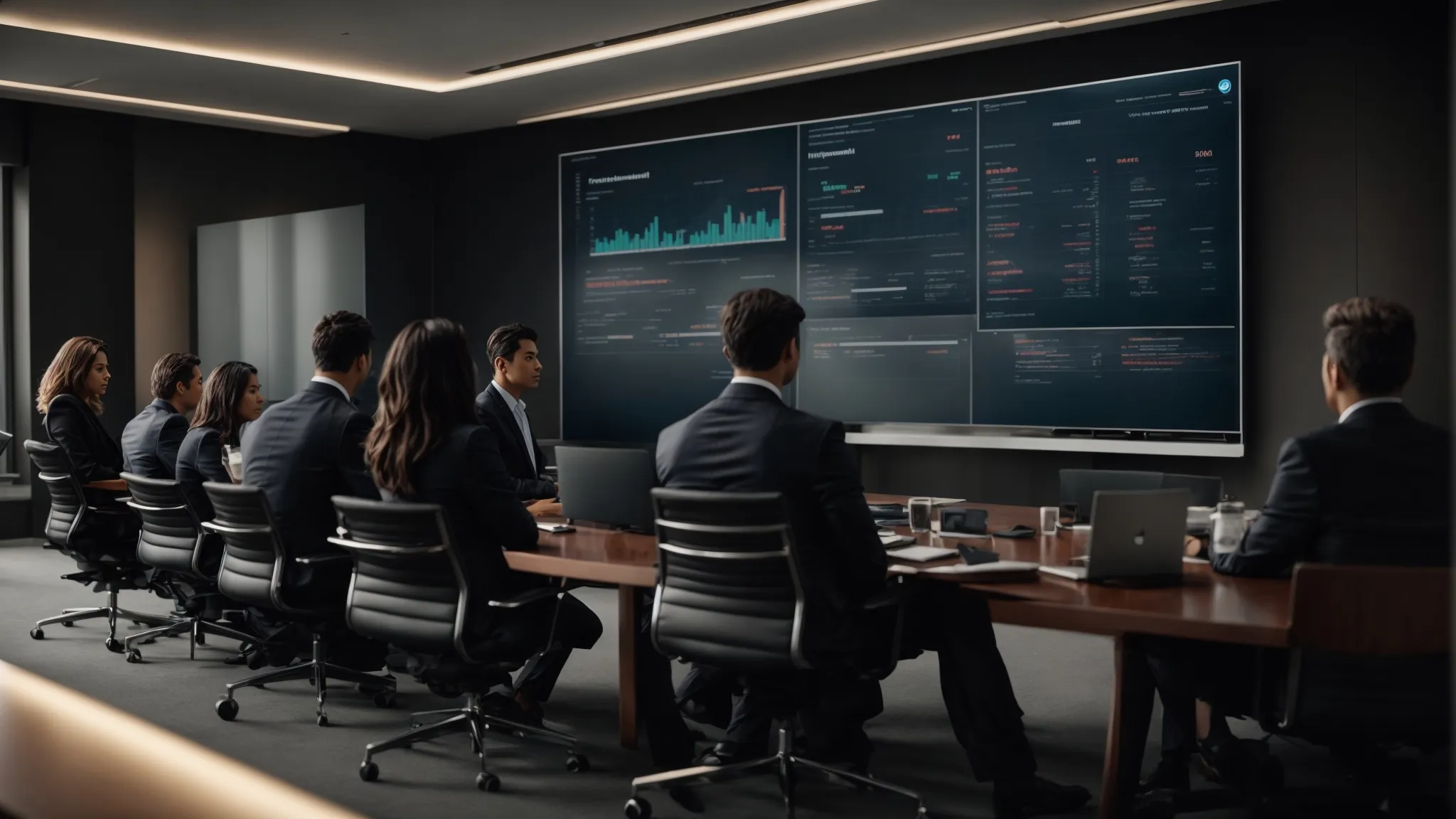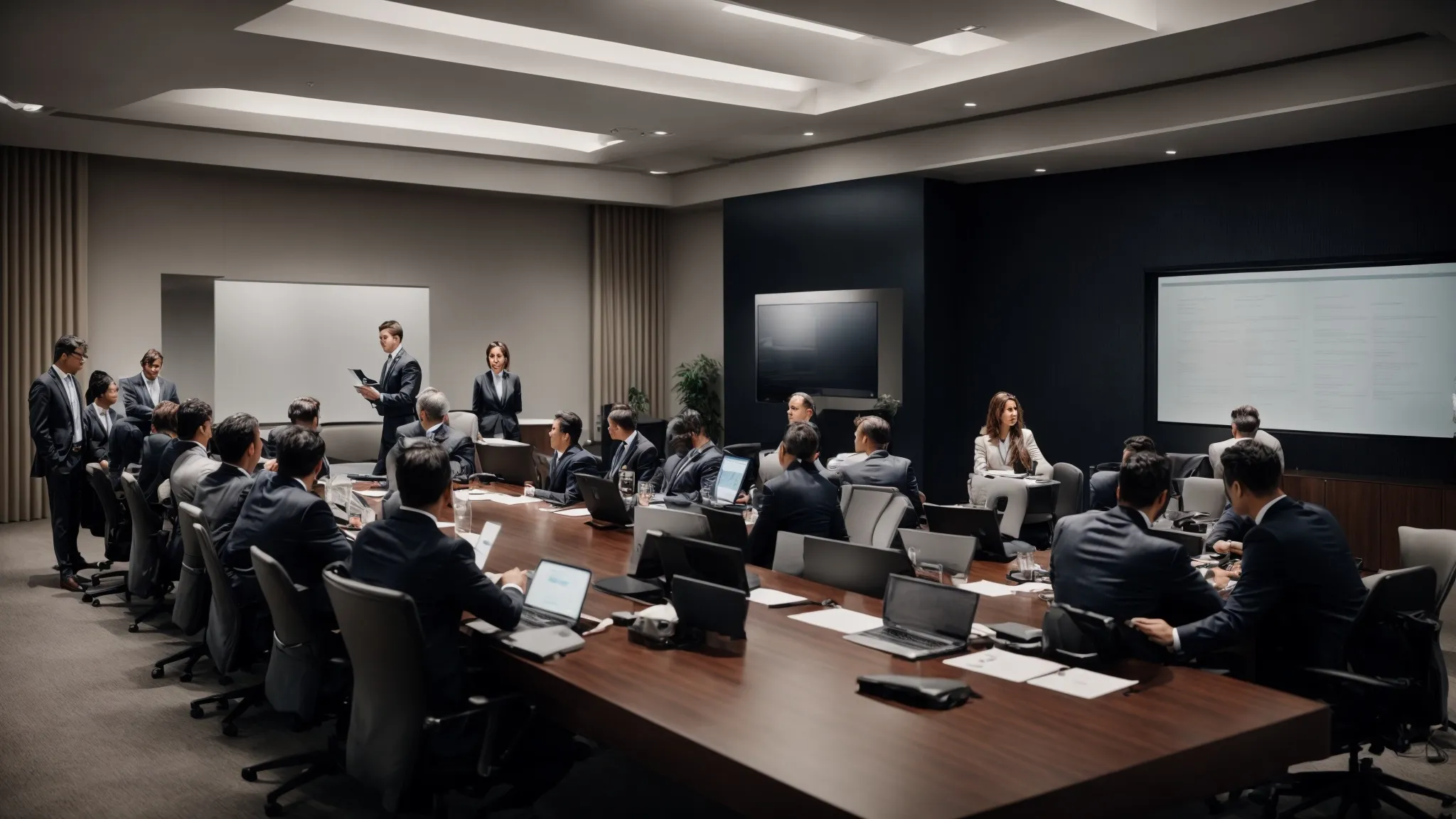THIS LAW HAS BEEN OVERTURNED AND FOUND TO BE UNCONSTITUTIONAL
in National Small Business Association v. Yellen (Case No. 5:22-cv-01448), U.S. District Court for the District of Alabama found the Corporate Transparency Act (CTA) to be unconstitutional by stating that it “transcends the limits imposed by the Constitution on the legislative branch and lacks a strong connection to any enumerated power to serve as a necessary or appropriate means to achieve Congress’ policy objectives.” The Court stated that it surpassed its constitutional power by implementing this act. We are expecting an appeal from this ruling.
THE CORPORATE TRANSPARENCY ACT
The impending 2024 Treasury guidelines on Beneficial Ownership Reporting are poised to reshape compliance frameworks within Limited Liability Companies (LLCs). As deadlines draw near, LLCs scramble to dissect the complex obligation of identifying beneficial owners, a move spurred by anti-money laundering legislative strides and the quest to stamp out financial crime. The onus falls on financial institutions to assimilate a nuanced understanding of how these regulations interact with the Bank Secrecy Act and Financial Crimes Enforcement Network directives to establish robust Anti-Money Laundering (AML) compliance programs. See Federal Register :: Beneficial Ownership Information Access and Safeguards
Embarking on this compliance journey requires deft management of documentation, due diligence, and reporting procedures echoing the Financial Action Task Force’s call for heightened transparency in financial dealings. It is especially important for financial institutions to prioritize regulatory compliance, given the increasing focus on combating financial crimes such as money laundering. Our law firm can help you to stay compliant under a flat fee arrangement.
Keep reading to navigate the labyrinth of regulatory edicts, technology’s role in compliance, and the practicing measures LLCs must master to emerge successful in this new era of financial virtue. The due diligence of financial institutions, regulatory compliance, and financial crime enforcement networks play a crucial role in ensuring the financial system’s integrity.
To register your ownership and be compliant, please visit: Beneficial Ownership Information Reporting | FinCEN.gov
Key Takeaways
- LLCs Must Prepare for New Beneficial Ownership Reporting Requirements Enforced by the Treasury Department Starting in 2024.
- Accurate and comprehensive documentation of beneficial owners is essential to maintaining compliance and avoiding legal repercussions.
- Financial Institutions and LLCs Need to Adapt Their AML Compliance Programs in Light of Enhanced Scrutiny and Regulatory Changes.
- Technological Advancements in Software Solutions Can Aid LLCs in Efficiently Managing and Reporting Beneficial Ownership Information.
- Robust Data Protection Measures Are Crucial for LLCs to Ensure the Security and Confidentiality of Sensitive Ownership Data
Reporting Requirements
- Applicability: The law primarily targets small corporations, LLCs, and similar entities with 20 or fewer full-time employees and gross receipts or sales of $5 million or less in the previous year.
- Exemptions: There are 23 types of entities exempt from reporting, including publicly traded companies, certain nonprofits, and large operating companies.
- Deadline for Compliance:
Information to Be Reported
- For the Company: Legal name, trade name, address, jurisdiction of formation, and taxpayer identification number.
- For Beneficial Owners and Company Applicants: Legal name, date of birth, address, and an identifying number from a driver’s license, passport, or other government-approved document.
Beneficial Owners Defined
- A “beneficial owner” is anyone who exercises substantial control over the company or owns or controls a 25% ownership interest in the company.
Penalties for Non-Compliance
- Failure to comply with these requirements can lead to severe penalties, including felony conviction, a $500 daily penalty up to $10,000, and up to two years in prison.
Purpose of the Law
- The CTA aims to combat money laundering, terrorist financing, tax fraud, and other illicit activities by making it more difficult for bad actors to hide behind shell companies or opaque ownership structures.
Confidentiality of the Database
- The information collected will be stored in a secure, non-public database accessible only to certain government officials and authorized financial institutions.
Compliance Advice
- Small and medium businesses should be mindful of their filing obligations and any changes in ownership or business structure that might affect their reporting requirements. It’s important to stay informed about the specific details of the CTA and ensure timely compliance to avoid penalties
Understanding the 2024 Beneficial Ownership Rules

As the financial landscape evolves, regulatory compliance becomes a moving target for Limited Liability Companies (LLCs).
With the Treasury Department set to enforce new beneficial ownership reporting rules in 2024, LLCs must revisit their internal policies to align with the forthcoming regulatory expectations.
These rules, a significant chapter in the long-standing fight against money laundering and financial crime, stipulate that LLCs provide detailed information about the individuals who ultimately own or control their legal entity.
This introductory overview navigates through the labyrinth of new reporting requirements, clarifies quintessential definitions of beneficial ownership, elucidates recent enhancements to anti-money laundering legislation, and delineates the specific thresholds for reporting that legal entities like LLCs will need to meet.
Embracing this knowledge, an LLC can ensure that they are compliant and fortified against the reputational risk and legal liabilities associated with non-compliance.
Overview of the New Reporting Requirements
Within the sphere of regulatory compliance, one of the pivotal changes for LLCs and other legal entities is the adjusted obligation to report beneficial ownership information to the Financial Crimes Enforcement Network (FinCEN). Starting in 2024, entities must submit data on owners holding substantial control or a considerable ownership interest: a clear shift aiming to enhance transparency in the corporate structure. Financial institutions play a key role in ensuring due diligence and compliance with the Bank Secrecy Act and the guidelines set by the Financial Action Task Force.
The reporting framework is designed to uphold the Bank Secrecy Act, augmented by the Anti-Money Laundering Act of 2020, and mandates that the information supplied is accurate, comprehensive, and submitted within the prescribed deadlines: a strategy carefully orchestrated to mitigate risk and combat financial crime effectively:
- Entities must identify and disclose the personal details of all beneficial owners.
- The FinCEN reporting requirements extend to those responsible for controlling, managing, or directing a company.
- Financial institutions are urged to refine their customer due diligence processes in tandem with this new rule.
Key Definitions for Beneficial Ownership
In the realm of corporate law and financial regulation, the term’ beneficial ownership’ refers to individuals or entities that reap the benefits of owning an asset despite not being named on the formal records as the legal owner. Parsing this definition, ownership is not merely about whose name adorns a title but who ultimately calls the shots and enjoys the assets’ value. A financial institution plays a crucial role in ensuring regulatory compliance and conducting due diligence.
The clarification of beneficial ownership is critical to understanding the full extent of an individual’s or group’s financial and legal ties to an entity. It underscores the importance of unmasking the actual owners who might otherwise lurk behind layers of corporations, trusts, and other legal structures:
- Beneficial owners are those who exert significant influence or control over a company, directly or indirectly.
- They may be the individuals who receive dividends or profits from the entity or have the power to direct or overturn decisions made by the board of directors.
Updates to Anti-Money Laundering Regulations
The Anti-Money Laundering (AML) landscape is poised for significant evolution as the 2024 deadline for beneficial ownership reporting draws near. Enhanced scrutiny of the cloaked layers of control within corporations underscores the critical nature of these enhanced regulations within the overarching framework of the Bank Secrecy Act and the broader intent of the Financial Crimes Enforcement Network.
The revisions are projected to impose more extensive due diligence requirements on financial institutions alongside the mandate for entities to divulge the identities behind substantial equity interests and decision-making powers. These transformative steps fortify the AML regime, close loopholes, and ensure greater accountability in the financial system:
- Financial services providers must adjust their Know Your Customer (KYC) protocols accordingly.
- Entities subject to these rules will need to establish robust internal systems to identify and report beneficial ownership data accurately.
- Law enforcement gains a firmer foothold in tracing illicit financial flows hidden through complex ownership structures.
Thresholds for Reporting Information
Navigating the intricacies of the new beneficial ownership reporting thresholds is crucial for every legal entity. Effective January 1, 2024, the regulations mandate entities to report any individual with either a 25% or greater ownership interest or who exercises substantial control over the entity.
To ensure compliance, it is essential for an LLC to identify all qualifying beneficial owners as defined by these standards and prepare to disclose their information properly. This proactive approach allows for seamless adherence to the updated legislative requirement, forestalling any potential regulatory infractions or enforcement actions.
Identifying Your LLC’s Beneficial Owners

As the regulatory landscape continuously evolves, Limited Liability Companies (LLCs) face the imperative task of navigating the complexities of anti-money laundering laws, with a specific focus on the upcoming beneficial ownership reporting requirements mandated by the Treasury Department for the year 2024.
In this critical juncture, LLCs must exercise due diligence to accurately identify the individuals who hold significant control over their financial and operational activities.
With an obligation towards transparency and adherence to the law, businesses must implement meticulous strategies to verify, record, and maintain up-to-date information on their beneficial owners.
This section provides a comprehensive guide outlining a step-by-step approach for identifying beneficial owners, elucidating the documentation necessary for verification, and advising on the protocols for managing alterations in ownership.
Such preemptive measures ensure that LLCs remain in strict compliance, safeguarding against the repercussions of regulatory breaches.
Step-by-Step Guide to Identifying Beneficial Owners
The first stride towards beneficial ownership compliance involves collating key identifying information for each owner positioned to exert substantial influence over the organization. This entails gathering full legal names, residential or business addresses, and an understanding of the nature and extent of the beneficial interest held.
Following the initial identification phase, LLCs must ensure the authenticity of the information provided. The validation process usually involves scrutinizing identification documents such as passports, driver’s licenses, or other government-issued IDs, supported by documentation that corroborates the ownership or control status, such as trust agreements or share registers. Financial institutions play a crucial role in the due diligence process to ensure regulatory compliance and prevent financial crime enforcement networks.
| Step | Action | Documentation |
|---|---|---|
| 1 | Identify Beneficial Owners | Legal Names, Addresses, Ownership Details |
| 2 | Verify Authenticity | Government IDs, Trust Agreements, Share Registers |
Documentation Needed for Verification
Progressing from identification to validation demands exhaustive documentation for every beneficial owner. Entities must secure government-issued identification, such as passports or driver’s licenses, which bolsters verification and aligns with the stringent requirements set forth by the Financial Crimes Enforcement Network.
Moreover, to provide a comprehensive portrait of control, entities are impelled to present corroborative evidence such as stock certificates, voting records, or operational agreements that attest to the extent of influence or ownership held by the individuals in question. This evidentiary support is a testament to the legitimacy and veracity of the beneficial ownership claims, fortifying the entity’s compliance position.
Handling Changes in Ownership
A paramount facet of maintaining regulatory compliance for an LLC is the prompt and precise reporting of any changes in beneficial ownership. Such shifts may come about due to a myriad of reasons, including but not limited to the sale of shares, restructuring, or alterations in control. Regulatory compliance is crucial in the financial institution industry, ensuring due diligence in preventing financial crimes such as money laundering.
- Initially, the company must monitor for any movement in ownership stakes or control that meets or exceeds the reporting thresholds.
- Subsequently, the company should update its records and promptly report these changes to the Financial Crimes Enforcement Network in alignment with the established requirements.
In addressing changes in ownership, LLCs must implement a dynamic system capable of capturing shifts in the beneficial ownership landscape and ensuring continuous compliance. Rigorous monitoring and record-keeping become the cornerstones of a robust compliance framework, safeguarding the entity against the perils of regulatory scrutiny and potential enforcement actions. The company must also comply with regulations set by the financial institution.
Filling Out the Beneficial Ownership Form

The impending 2024 regulations usher in a new era of accountability for LLCs, demanding thorough documentation of beneficial ownership.
A pivotal component of adhering to these regulations requires LLCs to competently fill out the Beneficial Ownership Form issued by the Treasury Department.
This form, a linchpin in the fight against illicit financial activities, captures a wealth of detailed information that elucidates the ownership and control hierarchies within the LLC.
Perfect execution in completing this form is non-negotiable, as inaccuracies could lead to significant complications with the law.
Consequently, it’s essential for entities to be well-versed in the process, be cognizant of common pitfalls, and adhere to the mandated timeline for submission.
Failure to comply or erroneous reporting exposes the entities to regulatory action and can erode trust and damage the staunch reputation they’ve worked hard to build.
Details on How to Complete the Form
Completing the Beneficial Ownership Form requires rigorous attention to detail and an intimate understanding of the entity’s ownership structure. Each entry must be populated with verifiable data, reflecting up-to-the-minute accuracy in regard to the individuals exerting significant control or holding material interest within the limited liability company.
In filling out the form, LLCs should adhere to the guidelines provided by the Treasury Department, which typically outline various pieces of information to be included:
- Full legal name and address of each beneficial owner.
- Identification numbers that correlate with government-issued documents.
- Details regarding the nature and extent of the beneficial interest they hold.
Additionally, the form will necessitate information regarding the registered agent and any applicable managerial structure documentation. These particulars are essential to illustrate compliance with the Bank Secrecy Act and other regulatory frameworks aimed at preventing financial misdeeds.
Common Mistakes to Avoid in Reporting
In the meticulous process of reporting beneficial ownership, a common lapse is the unintentional exclusion of pertinent details regarding control interests. LLCs must be especially vigilant to disclose not just equity stakes but also any rights to influence the entity’s decisions significantly.
Another reporting pitfall to circumvent is the submission of outdated or imprecise information. Entities must periodically review and update their documentation, ensuring that the submitted data accurately reflects the current configuration of beneficial ownership and adheres to the latest FinCEN guidelines.
Timeline for Submission
Under the new regulations, LLCs are tasked with adhering to strict reporting timelines, placing heightened importance on internal processes to ensure timely submission. The Treasury Department establishes definitive cut-off dates for filing beneficial ownership information, necessitating that LLCs submit their forms punctually to avert any potential regulatory scrutiny or operational disruptions.
Furthermore, it is imperative that LLCs remain attentive to the specified submission windows, which are often dictated by specific triggering events such as the formation of the entity, changes in beneficial ownership, or according to the prescribed annual or biennial schedules. Missing these critical deadlines could expose an LLC to the risk of penalties and undermine its standing with financial institutions and regulators alike.
Implementing AML Compliance Programs in LLCs

In anticipation of the transformative year 2024 and the challenges posed by the updated beneficial ownership reporting mandates, LLCs must pivot towards meticulous planning and implementation of robust anti-money laundering (AML) compliance programs.
A tight-knit structure of policies, procedures, and controls constitutes the backbone of an effective AML framework.
Tailored to the nuanced demands of the LLC’s operations, this program safeguards against the incursion of illicit financial activity.
The cornerstone of such programs includes training employees comprehensively on AML tactics, constantly auditing and monitoring efforts to ensure the integrity of financial transactions, and swiftly adapting to regulatory amendments.
By embedding these essential elements deep within an LLC’s operational ethos, the organization stakes its claim to proactive vigilance—forever poised to meet the specifications set by the Treasury Department and the broader financial regulatory community.
Essential Elements of an AML Compliance Program
An AML compliance program’s foundation lies in a well-articulated policy that delineates the entity’s approach to identifying, assessing, and mitigating money laundering risks. Key to this policy’s effectiveness is the translation of complex regulations into actionable procedures that resonate with the unique operational facets of the limited liability company.
One indispensable element of an AML strategy involves the rigorous training of personnel, equipping them with the acumen to detect red flags and anomalies in financial patterns. This educational commitment fosters a culture of compliance and empowers employees to become the first line of defense in shielding their LLC from the taint of financial impropriety.
Training Employees on AML Policies and Practices
Equipping staff with a consummate understanding of AML policies and practices is vital for an LLC’s fortitude against the complex backdrop of financial crime. Continuous training programs cater to acquaint employees with the nuances of regulatory compliance, reinforcing the vigilance required to prevent their inadvertent complicity in money laundering activities.
Instruction on the practical application of AML protocols embeds a compliance-centric mindset within the workforce, serving as a bulwark against the risks associated with financial malfeasance. Team members become proficient in employing due diligence and recognizing the subtleties of suspicious patterns, thus upholding the integrity of the LLC’s financial dealings and contributing to the broader effort of maintaining a trustworthy financial system.
Auditing and Monitoring AML Efforts
To sustain a rigorous Anti-Money Laundering (AML) strategy, LLCs must establish an enduring auditing and monitoring process: scrutinizing transactions, assessing risk management protocols, and ensuring that AML compliance programs remain current with regulatory developments. This continuous oversight is a legal formality and an operational necessity, safeguarding the financial institution against potential lapses in AML policies and practices.
- Initial setup involves deploying an AML compliance task force equipped with the appropriate tools and authorities for effective oversight.
- Regular scheduled audits are enacted to dissect and verify the operational integrity of the AML framework within the LLC.
- Ongoing monitoring is bolstered by technology, utilizing systems like Actimize AML, that track and analyze transactional data for anomalous patterns that may indicate money laundering activities.
Following the establishment of these rigorous checks and balances, LLCs must adapt and evolve their AML initiatives in response to emerging threats. The use of machine learning and customized analytics plays an essential role in this adaptive process, identifying new indicators of financial crime and enhancing the overall effectiveness of the organization’s AML compliance program.
Reporting Obligations for Different Types of LLCs

As the clock ticks towards enacting the 2024 beneficial ownership reporting requirements, Limited Liability Companies (LLCs) must stand ready to navigate through nuanced compliance waters.
Particular intricacies emerge when dissecting the varied structures and classifications of LLCs, from the simplicity of a Single-Member LLC to the complexity inherent in Multi-Member and foreign-owned entities.
Each type of LLC will encounter unique reporting obligations, which underscore the need for bespoke compliance strategies tailored to their specific operational frameworks.
This segment delves into the specific guidelines and considerations for these distinct LLC categories, presenting vital insights for ensuring that accurate and timely reports are delivered to the Treasury Department in accordance with the evolving Anti-Money Laundering laws. Financial institutions play a crucial role in due diligence and regulatory compliance, as mandated by the financial crimes enforcement network and the Bank Secrecy Act.
Single-Member LLC Reporting Guidelines
For Single-Member LLCs, the 2024 beneficial ownership reporting adjustments pose both a challenge and an opportunity to underscore their commitment to transparency and regulatory compliance. These entities must provide detailed beneficial ownership information to FinCEN, reflecting the identity and extent of interest held by the sole member, including any individuals with the authority to manage the LLC’s affairs.
While the reporting process may seem straightforward for Single-Member LLCs due to the fewer parties involved, it’s imperative for the sole owner to understand and comply with the specific disclosure requirements. This entails timely submission of accurate information, as failure to do so could have serious legal repercussions, including penalties and examinations from regulators.
Multi-Member LLCs and Reporting Nuances
For Multi-Member LLCs tasked with integrating the 2024 beneficial ownership reporting requirements, the key lies in distinguishing and documenting the array of members and their respective ownership stakes and control interests. The complexity increases as these LLCs must consolidate and convey information for multiple stakeholders, each potentially possessing a varying degree of control or ownership that qualifies for reporting.
Coordinating compliance efforts presents a distinct set of challenges for Multi-Member LLCs, obliging them to establish transparent communication channels among members to gather necessary data. Ensuring that every member’s interest is accurately documented and reported to the Financial Crimes Enforcement Network demands diligent oversight from the part of the LLC’s compliance officers or legal advisors.
Special Considerations for Foreign-Owned U.S. LLCs
Special considerations for foreign-owned U.S. LLCs include understanding the interaction between U.S. regulations and potential foreign legislative requirements. These entities must adhere to the Treasury Department’s reporting standards while also ensuring compliance with regulations that govern their foreign owners, creating a dual-layered compliance environment that necessitates clear legal guidance.
Furthermore, identifying beneficial ownership may present additional complexities for these LLCs due to differences in international legal frameworks and potential barriers such as language or cross-border communication hurdles. It’s imperative for foreign-owned U.S. LLCs to establish robust internal procedures that efficiently manage these variables and maintain accurate reporting to the Financial Crimes Enforcement Network within the specified timelines.
Navigating State and Federal Reporting Overlaps

The convergence of state and federal regulation in the realm of beneficial ownership reporting presents a complex web of compliance demands for LLCs as they forge ahead into 2024.
LLCs must employ strategic foresight to align their reporting mechanisms to satisfy both state-level imperatives and the stringent criteria set forth by federal beneficial ownership rules.
This duality in reporting underscores the critical need for an adept reconciliation of varying jurisdictional requirements to maintain a robust anti-money laundering stance.
The upcoming content will explore the interplay between state and federal reporting mandates, offering guidance on how LLCs can adeptly coordinate with state-level reporting requirements while ensuring full compliance with the federal beneficial ownership rules. A limited liability company is the ideal legal entity to consider for this purpose.
Coordinating With State-Level Reporting Requirements
Limited Liability Companies (LLCs) prepare for 2024 with a discerning eye toward the concordance of state and federal mandates in beneficial ownership reporting. Entities must synchronize their compliance programs, ensuring that state-level regulatory frameworks — which can differ markedly in terms of requirements for transparency, filing fees, and documentation — are reconciled with the uniform demands of the Treasury Department’s guidelines.
Engaging with state regulations often involves interfacing with the Secretary of State or similar entities, which oversee the operational compliance of LLCs, including appointing a registered agent and maintaining filings. It is incumbent upon LLCs to accurately and synthetically consolidate state directives with Treasurial imperatives to keep their compliance seamless and integrated. Limited liability company is responsible for accurately and synthetically consolidating state directives with Treasurial imperatives to keep their compliance seamless and integrated.
Ensuring Compliance With Federal Beneficial Ownership Rules
In anticipation of the 2024 beneficial ownership reporting requirements, LLCs are tasked with a critical mission: achieving regulatory alignment with the rules set forth by the federal government. Appropriate compliance necessitates a systematic review of the entity’s owners and control mechanisms per specifications from the Financial Crimes Enforcement Network (FinCEN).
Meticulous reporting to the Treasury Department is the cornerstone of compliance with federal beneficial ownership rules:
- Each LLC must furnish FinCEN with precise details about beneficial owners with substantial stakes or control.
- Documentation must be submitted within established deadlines to remain in good legal standing.
- The reporting extends to anyone with significant management duties or decision-making authority in the company.
Utilizing Technology for Beneficial Ownership Compliance

As 2024 approaches, LLCs are priming their operations to integrate sophisticated technology within their compliance frameworks, especially in light of the stringent beneficial ownership reporting mandated by the Treasury Department. Financial institutions play a key role in ensuring due diligence and regulatory compliance, particularly in relation to the Bank Secrecy Act, money laundering, and the Financial Action Task Force.
The deployment of avant-garde software solutions for Anti-Money Laundering (AML) and reporting epitomizes this modern approach.
Such digital tools not only streamline the identification process of beneficial owners but also infuse a level of automation that efficiently reconciles accuracy with regulatory demands.
By harnessing the power of these advanced technologies, LLCs are positioning themselves to navigate the intricacies of compliance with agility and precision, safeguarding their operations against regulatory infractions and the associated financial consequences.
Software Solutions for AML and Reporting
As the 2024 beneficial ownership reporting deadline inches closer, LLCs are now leveraging cutting-edge software to enhance AML practices and streamline the required reporting procedures. These innovative software solutions offer automated tracking and thorough analysis of ownership structures, enabling LLCs to comply with FinCEN’s rigorous scrutiny while maintaining operational efficiency.
Moreover, contemporary technology platforms facilitate the secure aggregation and submission of beneficial ownership information, positioning LLCs to navigate the complex waters of Anti-Money Laundering regulations easily. This integration of technology equips entities with robust tools to minimize reporting errors and uphold the high standards set out by the regulatory authorities.
Automating Beneficial Ownership Identification
In the digital transformation age, automating identifying beneficial owners is a leap forward for LLCs aiming to comply with the upcoming regulations. Sophisticated software tools parse through vast datasets to pinpoint individuals wielding significant control or ownership, thus streamlining compliance processes.
This technological adeptness translates into a proactive rather than reactive approach to compliance, allowing LLCs to stay ahead of the 2024 beneficial ownership reporting requirements. It positions these entities to manage their reporting duties more effectively and maintain the security of sensitive ownership data.
- Integration of innovative software enhances the accuracy of identifying beneficial owners.
- Data-driven analytics provide deeper insights into ownership structures, facilitating ongoing compliance screening and due diligence.
- Automated systems generate precise and timely reporting outputs, which are crucial for meeting the Treasury Department’s deadlines.
Managing Beneficial Ownership Information Securely

In the lead-up to 2024, when the enforcement of beneficial ownership reporting for LLCs becomes a reality, it’s imperative to prioritize security measures related to confidential data.
With heightened regulatory scrutiny on ownership information, LLCs must establish rigorous strategies to shield sensitive data from unauthorized access.
Handling beneficial ownership information with the utmost care involves implementing best practices for data privacy and protection and preparing robust incident response plans to address potential data breaches and information leaks.
This foresight and preparation enshrine an LLC’s dedication to legal compliance and safeguarding its stakeholders’ trust.
Best Practices for Data Privacy and Protection
In safeguarding beneficial ownership information, LLCs must embrace advanced cybersecurity protocols and encryption standards that prevent unwarranted data breaches. Ensuring that electronic records are protected by state-of-the-art firewalls and secure socket layer (SSL) encryption is non-negotiable for maintaining the confidentiality and integrity of sensitive information.
LLCs are also responsible for conducting regular security audits and vulnerability assessments to detect potential risks in data handling processes. This proactive stance allows for swift rectification of security gaps and fortifies the company’s data management systems against the ever-evolving landscape of cyber threats.
Responding to Data Breaches and Information Leaks
In the digital era, swift and decisive action is essential in the wake of a data breach or information leak involving beneficial ownership details. LLCs must immediately enact their incident response plan, focusing on containing the breach, assessing the extent of the impact, and commencing remediation efforts to secure any vulnerabilities that may have led to the incident.
Communication is a critical component following a security compromise; LLCs are obliged to inform stakeholders, including the Financial Crimes Enforcement Network and affected beneficial owners, without delay. This approach demonstrates the company’s commitment to transparency and supports the restoration of credibility and trust in its commitment to secure sensitive information.
Preparing for Potential Audits and Examinations

Navigating the intricate mandates of anti-money laundering (AML) legislation, Limited Liability Companies (LLCs) stand on the cusp of a new era with the Treasury Department’s 2024 beneficial ownership reporting requirements. Limited liability companies are at the forefront of ensuring regulatory compliance and due diligence.
Essential to this new compliance terrain is an LLC’s preparedness for potential audits and regulatory reviews—an endeavor that ensures the entity’s operational transparency and readiness for scrutiny.
By familiarizing themselves with what to expect during an AML audit and maintaining impeccably organized records, LLCs can establish a compliance stratagem that satisfies regulatory demands and exemplifies their steadfast dedication to legal and ethical business practices.
What to Expect During an AML Audit
An AML audit typically involves a comprehensive review of an LLC’s adherence to anti-money laundering laws, including inspecting its beneficial ownership records and compliance programs. Auditors scrutinize internal controls and assess the thoroughness of due diligence efforts and the effectiveness of employee training on AML policies.
During the audit, an LLC can expect to present evidence of rigorous monitoring and reporting practices, demonstrating the organization’s commitment to preventing illicit financial activities. The evaluator will closely examine the accuracy and completeness of the LLC’s filings, such as the Currency Transaction Report and Suspicious Activity Report, to ensure conformity with regulatory standards.
Keeping Records Organized for Regulatory Reviews
For an LLC poised to meet the intricacies of an AML-related regulatory review, meticulous record-keeping is more than just a necessity; it’s a hallmark of strategic foresight. Organized documentation that chronicles every beneficial owner’s detail, coupled with up-to-date internal policies, plays a pivotal role in showcasing the entity’s compliance with AML statutes and beneficial ownership transparency demanded by the Treasury Department.
Maintaining an orderly compendium of financial records and AML program verification materials positions an LLC to respond promptly and confidently to regulatory examinations. The ability to rapidly furnish comprehensive files detailing the history and current status of beneficial ownership to auditors underscores an LLC’s commitment to conforming with financial regulation and managing risk.
Updating Beneficial Ownership Information Accurately

In the dynamic world of corporate compliance, the precision and timeliness with which Limited Liability Companies (LLCs) update beneficial ownership information are critical factors for adherence to evolving anti-money laundering statutes.
As the Treasury Department’s 2024 reporting requirements loom, LLCs are called upon to construct a fail-safe strategy for reporting ownership changes that respects the frequency and deadlines for updating information.
Ensuring that beneficial ownership data is current and accurately reflects the company’s ownership landscape, LLCs stand to fulfill their legal obligations while maintaining operational integrity within the global financial system.
How to Report Changes in Ownership
Adapting to the changing tides of beneficial ownership disclosure is mandatory for LLCs as they prepare to meet the Treasury Department’s 2024 reporting requirements. When a change in ownership occurs, the LLC should expeditiously document and communicate these alterations via the required FinCEN forms with precision, ensuring the reported information mirrors the new ownership structure accurately.
Secure and timely reporting of ownership updates is pivotal to maintaining legal compliance and upholding the integrity of the financial ecosystem. LLCs are responsible for asserting changes that cross the thresholds of significant control or ownership interest, leveraging the established FinCEN electronic filing system to submit current and factual beneficial ownership data.
Frequency and Deadlines for Updating Information
Navigating the upcoming beneficial ownership requirements, LLCs must internalize the cadence of periodic updates mandated by the Treasury Department. Adhering to specific deadlines and updating protocol proactively when changes in beneficial ownership arise necessitates a system that champions punctuality to avert compliance shortcomings.
Each LLC should circumscribe the routine of updating beneficial ownership information, knowing full well that this is not merely a one-time event but a cyclical responsibility. The Treasury Department will specify timelines, and it is incumbent on the LLC to mark these in its corporate calendar to ensure that reporting reflects the entity’s current ownership structure, thereby avoiding operational hiccups and possible legal penalties.
Conclusion
As 2024 approaches, it is imperative for Limited Liability Companies (LLCs) to gear up for the enforcement of new beneficial ownership reporting requirements from the Treasury Department.
These changes mandate detailed disclosure of individuals with significant control or ownership interests in LLCs, aiming to bolster anti-money laundering (AML) laws.
LLCs must critically review and synchronize their internal policies, considering the new reporting frameworks under the Bank Secrecy Act and the Anti-Money Laundering Act of 2020.
Identifying beneficial owners, verifying information authenticity, and updating records dynamically in response to ownership changes are key preparatory actions.
Employing technology will be fundamental in streamlining the compliance processes.
Software solutions that automate beneficiary identification and reporting can significantly reduce the potential for errors and enhance efficiency.
At the same time, ensuring data privacy and preparing for potential audits will enhance an LLC’s resilience against regulatory scrutiny.
Compliance calls for strategic alignment of federal and state-level reporting requirements, emphasizing the need for meticulous record-keeping and an updated AML compliance program.
LLCs must remain vigilant, ensuring submissions meet deadlines and accurately reflect current ownership.
In summary, proactive preparation and continuous compliance strategy refinement are critical for LLCs to successfully navigate the 2024 beneficial ownership reporting requirements, maintain legal standing, and contribute to the overarching aim of preventing financial crime.
LET US HELP YOU
At Transnational Matters, our team of attorneys is ready to help to stay within compliance with the new anti-money laundering law. Our brand is known for our strong and confident voice when it comes to navigating complex international legal matters. We understand the importance of staying current with all laws and regulations, especially in the rapidly changing landscape of global business.
The recent changes to anti-money laundering laws have brought about new challenges for businesses operating internationally. These laws aim to prevent criminal activities such as money laundering, terrorist financing, and tax evasion. Contact our office if you are in need of assistance. Our firm can help you under a flat fee arrangement.


